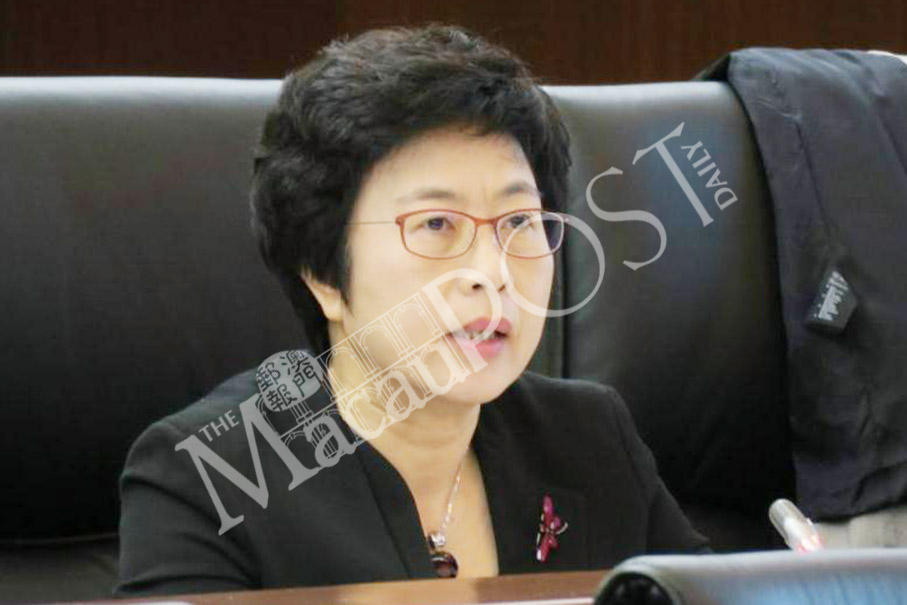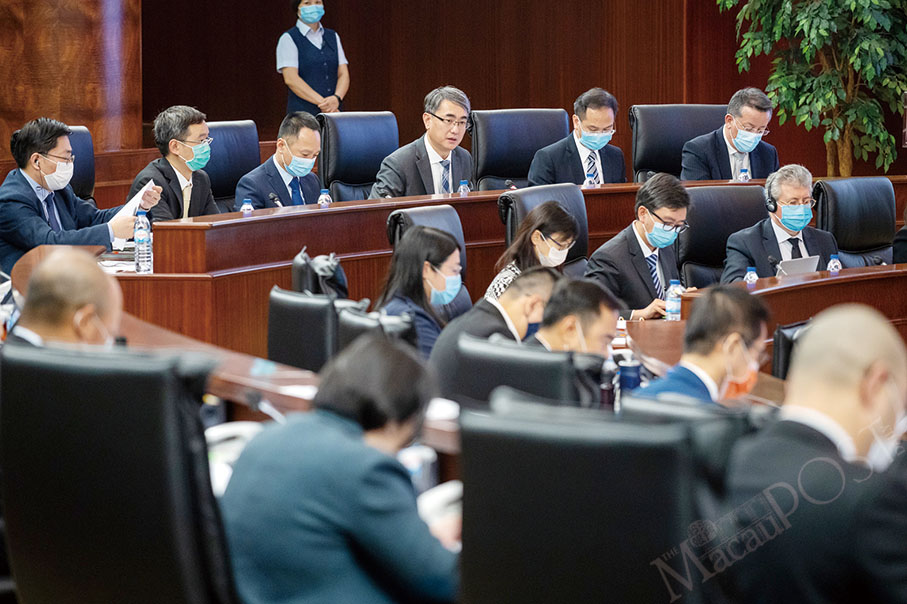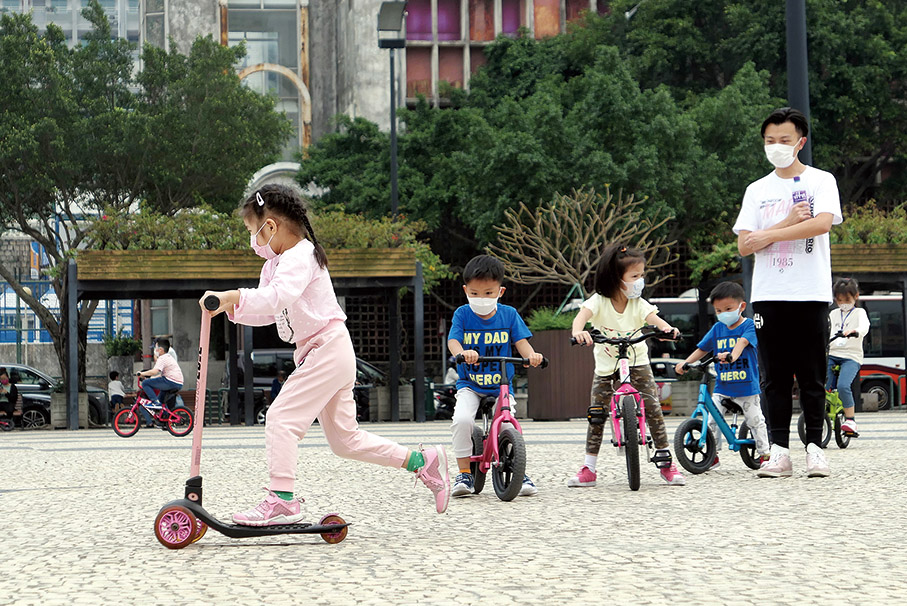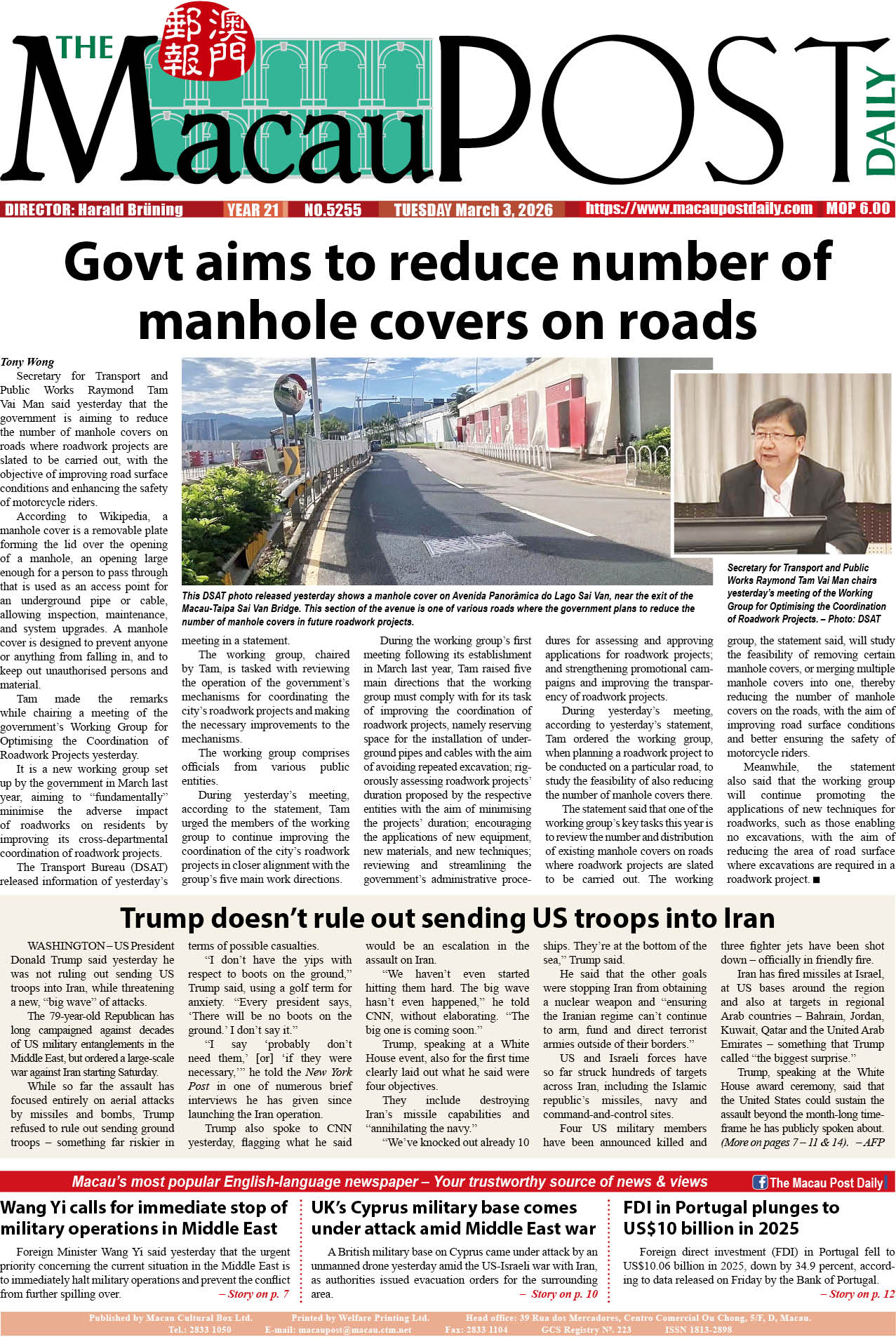The Legislative Assembly (AL) yesterday passed a government-initiated bill amending the Judicial Organisation Framework Law, according to which all cases involving national security will only be tried by local judges holding Chinese nationality.
The amendment bill will take effect 30 days after its promulgation in the Official Gazette (BO).
According to the amended version of the Judicial Organisation Framework Law – i.e. the amendment bill passed yesterday, if the government’s policy secretaries, the legislature’s president and the chief public prosecutor have been charged with a criminal offence they shall be tried by the Court of Second Instance (TSI) in the first instance, a change from the previous situation in which they – if accused of a criminal offence – were to be tried by the Court of Final Appeal (TUI) in the first instance.
Two principal officials – former secretary for public works and transport Ao Man Long and former chief public prosecutor Ho Chio Meng were tried by the Court of Final Appeal in the first instance.
The bill’s outline was passed during a plenary session of the legislature in July last year. The legislature’s 3rd Standing Committee held 11 meetings to review the bill, which also aims to improve the judiciary’s operations and speed up trial proceedings. Macau’s judiciary is notoriously sluggish.
The Judicial Organisation Framework Law took effect when the Macau Special Administrative Region (MSAR) was established on December 20, 1999.
Secretary for Administration and Justice Sonia Chan Hoi Fan attended yesterday’s plenary session when the bill was voted on article-by-article in its final reading.
According to the amended version of the Judicial Organisation Framework Law, only judges holding Chinese nationality can conduct trials for cases of the crimes listed in Macau’s national security law, and only prosecutors holding Chinese nationality can handle such cases as well.
Macau’s national security law – the Law on the Defence of National Security – was enacted in 2009, based on the Article 23 requirement of the Macau Basic Law.
The local Law on the Defence of National Security lists seven crimes on endangering national security mentioned by Article 23 of the Macau Basic Law, and their penalties.
The seven crimes listed in the local national security law are treason, secession, sedition, subversion against the central government, theft of state secrets, acts against national security committed by foreign political organisations or bodies in Macau, and the setting-up of ties by Macau’s political organisations or bodies with foreign political organisations or bodies.
While some of Macau’s judges and public prosecutors are Portuguese nationals, most are local Chinese nationals.
The government has said that the crimes listed in the local national security law involve interests concerning the nation’s independence, the unity and integrity of the state and its internal and external security
When drafting the bill, the government insisted that only judges and prosecutors holding Chinese nationality should handle national security cases.
The government has stressed that it never intended to question the professional qualifications and conduct of local judges holding foreign nationality.
Responding to legislators’ questions during yesterday’s plenary session, Chan defended the new rule that all cases involving national security shall only be tried by local judges and prosecutors holding Chinese nationality.
Unity of the state
Chan said that local cases concerning national security involve fundamental interests concerning the unity and integrity of the state, pointing out that the local government is responsible for ensuring the protection of the core interests of the nation.
Chan said that Macau is among the very few jurisdictions in the world that allows the employment of judges holding foreign nationality. The policy secretary asked rhetorically that if the local courts did not trust local judges holding foreign nationality, why would they recruit them in the first place.
According to the amended version of the Judicial Organisation Framework Law, for criminal offences allegedly committed by the legislature’s president, the government’s policy secretaries, Court of Second Instance (TSI) and Court of Final Appeal (TUI) judges, the public prosecutor-general, and assistant public prosecutors-general, their first-instance trial shall be conducted at the Court of Second Instance, a change from the previous version of the law which stated that they were to be tried by the Court of Final Appeal in the first instance. The crux of the matter in this context is, according to legal experts, that the rulings by the Court of Final Appeal cannot be appealed.
The Macau government currently has five policy secretaries.
Chief executive in the dock can’t appeal
The Judicial Organisation Framework Law amendment bill passed yesterday states, however, that the chief executive charged with a criminal offence shall be tried by the Court of Final Appeal, unchanged from the previous version of the law. This means that the chief executive tried by Macau’s top court in first instance is denied the right of appeal.
According to Article 50 of the Macau Basic Law, Macau’s principal officials comprise the government’s policy secretaries, anti-graft commissioner, audit commissioner, head of the Unitary Police Service (SPU) and chief of the Macau Customs Service.
According to the previous version of the Judicial Organisation Framework Law, the four principal officials other than the policy secretaries, judges of the Court of First Instance (TJB) and prosecutors all faced their first-instance trial in the Court of Second Instance.
Now, according to the amended version of the Judicial Organisation Framework Law, apart from the chief executive, all the government’s nine principal officials, the legislature’s president, all judges (including the TUI president and TSI president) and all public prosecutors (including the chief public prosecutor) accused of a criminal offence shall stand trial in the Court of Second Instance in the first instance.
Fundamental human right
Several lawmakers disagreed with the rule that the chief executive charged with a criminal offence shall still be tried by the Court of Final Appeal in the first instance. They pointed out the unchanged rule means that Macau’s chief executives are denied the right of appeal – a fundamental human right.
According to the Article 14 (5) of the International Covenant on Civil and Political Rights, which in line with Article 40 of the Basic Law is in force in Macau, ‘Everyone convicted of a crime shall have the right to his [or her] conviction and sentence being reviewed by a higher tribunal according to law”.
Chan defended the unchanged rule that the chief executive charged with a criminal offence shall be tried by the Court of Final Appeal in first instance – without the right to appeal. She pointed out that the chief executive has a special status as he or she is the head of the Macau Special Administrative Region (MSAR).

Secretary for Administration and Justice Sonia Chan Hoi Fan speaks during yesterday’s plenary session in the legislature’s hemicycle about the judicial amendment bill. Courtesy: TDM
PLEASE READ THE FULL ARTICLE IN OUR PRINT EDITION.








